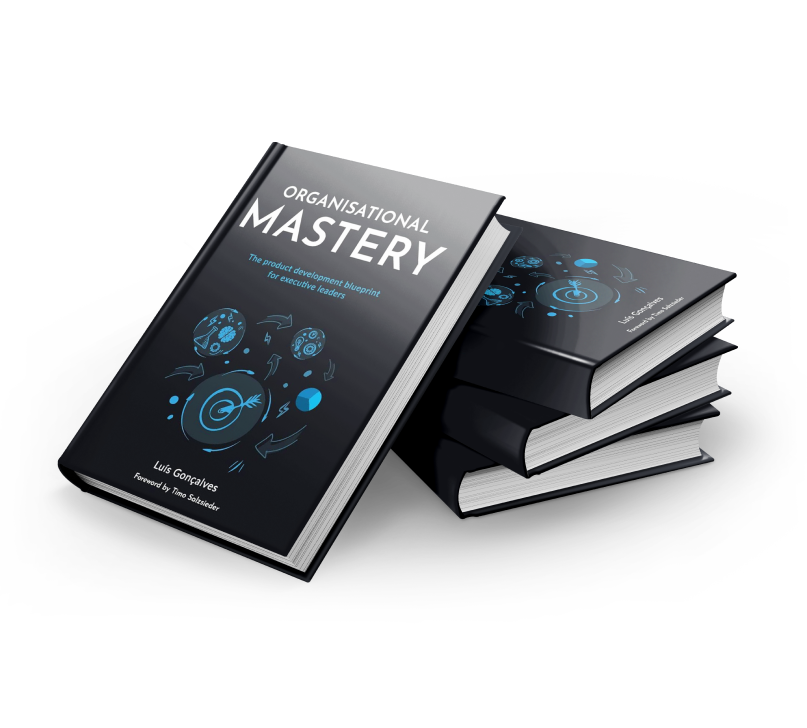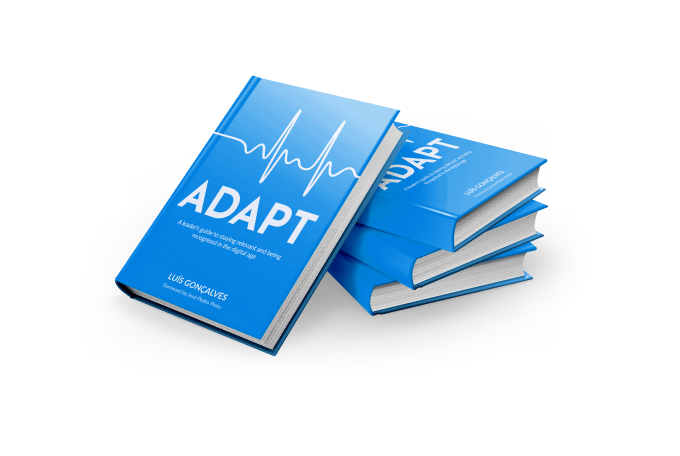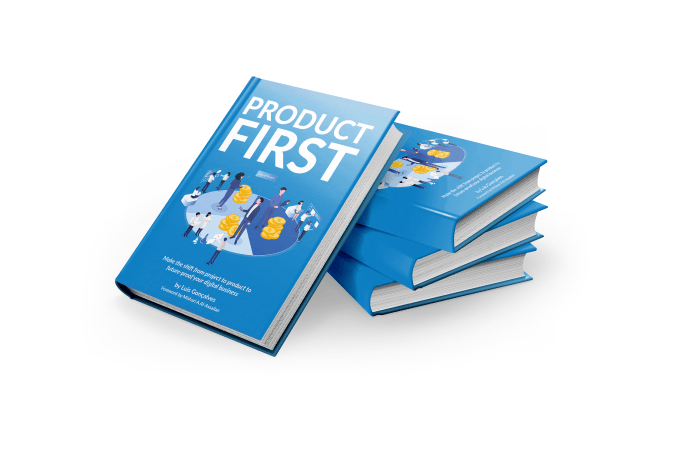Share this
Scrum Values are the Foundation of Agile Software Development
by Luis Gonçalves on Jan 13, 2024 6:15:21 AM
In the transformative journey from project to product, the Scrum values stand as cardinal guidelines that foster a conducive environment for agility, innovation, and sustained growth.
The Scrum values not only facilitate a smoother transition but also cultivate a product-centric ethos grounded in respect, collaborative effort, and continuous improvement, which is vital in navigating the intricate landscape of product development successfully.
Scrum is a framework for developing, delivering, and sustaining complex products. It is a popular project management framework for agile software development but is currently applied in many other industries.
The Scrum Guide defines the roles, events, artifacts, and rules that define this framework. Almost two decades ago (in 2001), 17 software development thinkers came together to create another important aspect that led to the development of the Agile Manifesto – the Scrum Values.
Not all product development frameworks have a certain set of values like Scrum. These values play a significant role in the success of agile teams because they give direction to how people work, behave, make decisions, plan, and execute their tasks. Every Scrum team understands the need for these values to be incorporated in every step, process, and sprint that they accomplish.
ADAPT Methodology® is a unique Digital Product Development framework to change traditional project-centric companies toward product-led companies!
Society changed and leaders need support in the way they lead and design their digital product organizations, that is the reason why the ADAPT Methodology® was created.
The Scrum Values
Commitment
The first Scrum value is commitment. It is easy to misunderstand ‘commitment’ in Scrum as a promise to deliver. But it is not.
Commitment is not simply the intention to do something at a specific time and date or meet the deadline. These things fall into the definition of ‘forecasting’. In agile teams, challenges are inevitable especially when it comes to software development.
People get ill, new insights about the product are developed along the way, adjustments are made, and so on. Commitment is not meant to put pressure on the Scrum team, but rather keep them focused on achieving high-quality results in the most reasonable amount of time.
Commitment is central to the empirical process. At the same time, it fosters collaborative work – an essential aspect of the Scrum methodology.
This value, in the context of Scrum, covers the following:
- To deliver quality products. The Scrum team commits to delivering quality work regardless of the challenges that come along the way.
- Meet the sprint goal and work on the backlog items with the highest value.
- Deliver a shippable product that meets the expectations of the customer.
- Focus on the success of the team by promoting productive problem-solving, trust, and high team standards.
- Dedication to doing their best.
How can your agile team promote commitment? Because Scrum is a well-established, highly structured framework, you won’t have to create rules to drive commitment from your agile team.
The Product Backlog, for instance, drives commitment by fostering transparency. From the very start, everyone in the Scrum team already understands what needs to be done and at what pace in order to meet their sprint goal.
Meanwhile, the Sprint Retrospective promotes the commitment to practice continuous improvement.
Courage
To build a successful product, it takes more than just commitment. Courage is essential in solving complex problems and in growing high-performing teams.
Courage comes in various forms. We practice it when we have to stand up to the boss and let them know about the incorrect decisions being made. We show it when we admit that we don’t know everything or that we commit mistakes. But why is courage important in Scrum?
As we’ve discussed before in one of our Scrum articles, Scrum is designed to address complex adaptive problems. Agile software development is really challenging. And it takes a lot of courage to achieve great results.
How else does courage apply in the Scrum methodology?
- To be transparent in everyone’s progress, no matter how difficult the task is.
- To hold others accountable for their respective roles and responsibilities.
- To change the sprint backlog items after feedback from the customers.
- Build something that no one has done before.
- Share a dissenting opinion in a positive and encouraging manner.
- Admit mistakes and shortcomings.
Inspection and adaptation, which are among the three pillars of Scrum, embody the value of courage. During an inspection, the Scrum team members openly listen to feedback and assume that they may need to change direction along the way.
Additionally, the time-box nature of the sprint allows the Scrum team to try new things, experiment, and challenge the status quo. Ultimately, the Sprint Retrospective allows the team to identify opportunities for improvement.
Focus
Amidst the complexity, unpredictable, and ever-changing nature of agile product development, there’s one thing that keeps us getting stuff done. That’s the focus.
There’s a reason why the Scrum Team is called a team. People work together to achieve one common goal. Regardless of everybody’s expertise, task, and skills, they are focused on one end goal – delivering a high-quality product.
Collaboration is essential to the success of the team. By employing this value, the Scrum team discovers the best ways to get things done in less time.
Here’s how the focus is practiced in agile teams:
- Determine what needs to be tackled first. During the sprint planning, the PO creates the epics, user stories, and tasks of the project, and the members voluntarily get a task based on their skills and expertise.
- Decide on what is the most important thing at the present moment and work on it first. Less time wasted.
- Accept uncertainty and take steps to move forward.
- Focus on the desired outcome.
The Scrum events and artifacts are what drive the focus and the time-box Sprint creates a sense of urgency.
Openness
Openness, as a Scrum value, fosters transparency. It simply means being honest.
Scrum team members should keep no secrets relevant to their work and responsibilities. Furthermore, organizations that adopt the agile framework are open and visible to feedback, inspection, and adaptation.
Below are the ways in which openness is reflected in an agile framework:
- Asking for help and guidance when necessary.
- Offering help to one another.
- Share their perspectives and support team decisions.
- Admit mistakes and change direction.
The Product Backlog demonstrates openness as everyone gets to see what other people are working on. Furthermore, the Sprint Retrospective drives openness to feedback and the need to change.
Respect
The last but not the least of the Scrum values is ‘respect’. When there is respect, the Scrum team is able to maintain transparency and stick to their goals.
It empowers the team to self-organize, solve problems, and collaborate with one another.
Respect is shown in many different Scrum dealings:
- Respect and acknowledgment of the team’s diverse backgrounds, experiences, and range of skills.
- Respect that everyone, despite being part of the team, has autonomy, purpose, and mastery of their own skills.
- Respect for everyone and the assumption that they all have good intentions.
- Respect for all opinions and perspectives.
Respect is observed in all Scrum processes, from the Sprint planning to the product backlog creation, and Sprint Review.
That’s the quick rundown of Scrum Values that you should be inculcated in the culture of your team. How do you plan to integrate this into your company culture?
Did you like this article?
We enable leaders to become highly valued and recognized by adapting their project-centric company into a product-led company, society changed and leaders need support to adapt their companies to the digital era, that is the reason why the ADAPT Methodology® was created!
If you are interested in knowing if your company is a project-centric or a product-led company simply take our Project To Product Scorecard.
If you want to know how we can help you to start your transformation please check out our: Project To Product Training.
If you are interested in doing a transformation in your company please check out our: Project To Product Consulting.
Share this
- Agile Methodologies (18)
- Product Strategy (18)
- OKRs (16)
- Scrum (16)
- Product Mindset (14)
- Project To Product (10)
- Agile Retrospectives (9)
- CoPs (9)
- Knowledge Sharing (9)
- Time To Market (8)
- Product Discovery (7)
- Continuous Improvement (5)
- Strategy (5)
- Scrum Master (4)
- Content Marketing Strategy (3)
- Product Owner (3)
- Technical Excellency (3)
- Digital Transformation (2)
- Innovation (2)
- Scaling (2)
- Team Building (2)
- Business Model (1)
- Cost Of Delay (1)
- Customer Feedback (1)
- Customer Journey (1)
- Customer Personas (1)
- Design Thinking (1)
- Digital Leadership (1)
- Digital Product Tools (1)
- Go To Market Strategy (1)
- Google Design Sprint (1)
- Lean Budgeting (1)
- Lean Change Management (1)
- Market Solution Fit (1)
- Organisational Impediments (1)
- Outsourcing (1)
- Product (1)
- Product Metrics (1)
- Product Roadmaps (1)

Organisational Mastery
Get your free copy

ADAPT
Get your free copy

Product First
Get your free copy

